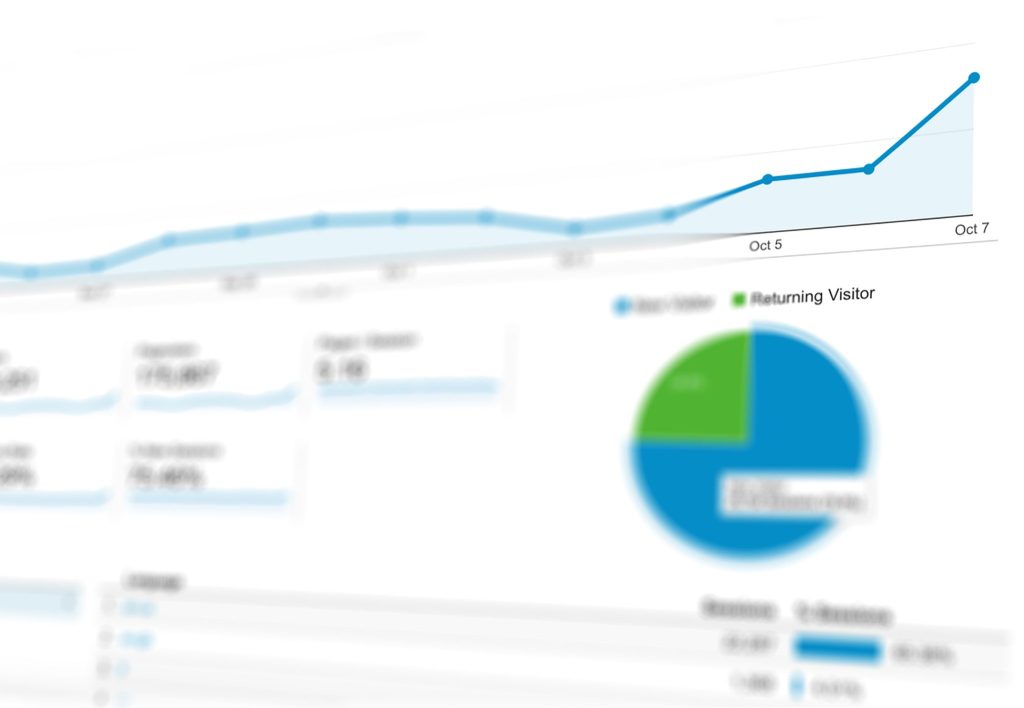This blog is the first in a three-part series about outdated SEO tactics that should be avoided. Here, we’ll focus on the use of keywords. Part two looks at outdated concepts in the world of content, while part three concerns link building. Get ready to un-learn some archaic SEO!
In the world of SEO, applying outdated tactics or operating on the basis of disproven concepts could potentially be damaging, if not fatal for the online presence of a business. Google are constantly fighting against sneaky strategies that aim to manipulate search rankings with a whole host of penalties and punishments. We would like to think that these strategies are now a thing of the past, but we often notice that the way in which a website uses (or abuses) SEO is either very risky or completely useless. Alas, archaic SEO is far from dead in 2020!
As a digital marketing agency that specialises in SEO, our job is not just to help businesses boost their KPIs and get their phones ringing off the hook. We must do this while also protecting them from the negative aspects of SEO and keeping them up to date on the latest and greatest techniques in our field. We must stick to white hat tactics with a proven history of success, tactics that do not fall foul of Google Webmaster Guidelines.
In other words, SEO isn’t just about knowing what to do. It’s also about knowing what not to do. If you want to start seeing real results for your business (whatever your goals may be), it’s very important that you get with the times in the digital space. So make a note of these dodgy tactics, old school concepts, and bogus SEO techniques. And whenever you see them brought up, usually next to the promise of “guaranteed page-one rankings” or “results in under 24 hours”, remember to swiftly disregard them in the knowledge that you’re better than that.
Meta keywords
The use of meta keywords for SEO dates back to those lawless times before Google existed, although it has long since lost all value and significance. Behind the scenes of every web page, hidden within the html code, there is a ‘keywords’ meta tag which allows you to specify the general subject of a page using a range of relevant terms. In the pre-Google landscape, rankings depended largely on keyword based page content and so keywords were the main currency for SEOs. As such, this tag was often used as a discrete vessel for ‘keyword stuffing’ (more on this next!) by those looking to cheat search ranking algorithms. Search engines are now far more complex, and although keywords are still taken into account meta keywords are another matter.
Back in 2009, Matt Cutts, Google’s former head of webspam, explicitly stated the fact that “Google doesn’t use the ‘keywords’ meta tag in our web search ranking” on the grounds that it “was so often abused”. The team over at Bing later joined the club, bluntly claiming in 2014 that “the meta keyword tag is dead in terms of SEO value… (it) flatlined years ago as a booster.” And yet, despite this unanimous dismissal of meta keywords by search engines, there are many who still insist on filling their keyword tags with targeted search terms (no doubt helped by the misleading fields within some popular SEO plugins for WordPress). Please, dear readers, don’t do this. It’s a waste of time, it looks spammy to search engines, and your competitors will be able to see which keywords you are targeting simply by reading the meta tags on your site.
Note: this is not to say that meta tags have absolutely no purchase on your page rankings. Indeed, a fundamental aspect of on-site SEO is writing useful, relevant, tasteful, and captivating title tags and meta descriptions based on your target keywords. So ditch the meta keywords, and start paying more attention to those on-site elements that matter.
Keyword stuffing
Unfortunately, we have encountered many people who immediately think of this manipulative (and quite frankly incredibly ugly) tactic when SEO comes up in conversation. Keyword stuffing, as well as being harmful and useless, gives more legitimate SEO practices a bad name, evoking nightmarish visions of unreadable articles and so much repetition. For some reason, some people still think that SEO is a matter of quantity over quality and not the other way round, cramming their website with a deluge of keywords in a vague attempt to up its search rankings. In their quality guidelines, Google provide the following example of keyword stuffing:
“We sell custom cigar humidors. Our custom cigar humidors are handmade. If you’re thinking of buying a custom cigar humidor, please contact our custom cigar humidor specialists at custom.cigar.humidors@example.com.”
It’s pretty uncomfortable to read this, right? It’s the SEO equivalent of trying to win the favour of a love interest by repeatedly texting them the same thing over and over and over and over again. It does not work and you make yourself look like a huge idiot. Not least in the eyes of Google, who have enlisted the joint forces of the Florida, Panda, and Hummingbird updates to fight against the outdated tactic. This not only makes it very dangerous but also worthless as an approach to on-site SEO. You won’t catch any serious digital marketing agency stuffing content, partly because the tactic guarantees a swift penalty for those who use it and partly because it would offer no value to their clients.
All SEOs should focus on writing content that provides useful solutions for your users queries – if you do this, your keywords (and synonyms of those keywords) will likely occur quite naturally. Regardless, whether your content features target keywords or not, Google is clever enough to understand the meaning behind a search term and therefore the meaning behind your content. Have some faith in the system!
Keyword cloaking
Keyword cloaking is the crafty cousin of keyword stuffing. Although the intention is just the same – to improve the rankings of a page by cramming it with a wide range of targeted keywords – the approach is much less obvious. Keyword cloakers want the same thing as keyword stuffers, only without the sloppy and dubious appearance. So instead, target keywords are added to the content of a page in such a way that makes them visible to search engines but not to users. One way of ‘cloaking’ keywords involves making the text the same colour as the background, rendering them invisible to users (in the browser) but still visible to Google bots (in the code).
If you don’t immediately see why this is manipulative, then this article is probably lost on you. Hiding any page content from your users solely in an attempt to increase your visibility in search – it’s about as manipulative as it gets, not to mention utterly pointless nowadays. Cloaked content offers absolutely no value to the user (value is a big indicator of good SEO), and it’s a sure fire way to attract Google’s voracious Panda Update, the likes of which has been chewing apart websites for numerous on-site offences since 2011. That’s nine years ago… there are simply no excuses anymore! So put the invisible ink away, and start being honest. After all, in SEO as anywhere in life, honesty is the best policy. The content on your website should always be geared towards users first and foremost, search engines second.
Keyword density
Yes, we know, yet another keyword concept… old school SEO was just very keyword-centric! While keywords can still help define the content of a page and capture traffic via search terms, the pioneers of SEO put far too much emphasis on their use (and misuse) throughout a website. Simply put, this emphasis does not accord with the algorithms behind modern search engines, which now take hundreds of other factors into account when ranking any given page. But still, many SEO practitioners (and even prominent SEO platforms such as Yoast) use the concept of ‘keyword density’ as the measure of a page’s capacity to rank in search results.
On paper, keyword density details the amount of text on a page that contains a certain keyword, usually in the form of a percentage value. So if a piece of content contains 500 words in total, and your target keyword appears in the content 10 times, the keyword density would be 2%. Obviously it’s not the maths that many consider to be outdated, but rather its application in SEO. In theory, a page with the right keyword density will be more relevant to the keyword in question, and as such better suited to rank for that keyword in search engines. If it’s too low or too high, however, the universe falls out of balance and your page disappears from search results.
The last time we checked, there are no search engines in 2020 that are so rudimentary as to base their ranking algorithm on simple percentages. Sorry, we know it would make things easier, but it’s complete nonsense, and this much has been confirmed time and time again by Google. Here’s what the infamous Matt Cutts had to say on the matter:
“If you think that you can just say “I’m going to have 14.5% keyword density, or 7%, or 77%, and that will mean I’ll rank number 1”… That’s not the way search engine rankings work. The first 1 or 2 times you mention a word, then that might help your ranking… But just because you say it 7 or 8 times, that doesn’t mean that it will necessarily help your ranking… I would love it if people could stop obsessing about keyword density… Maybe we can dispel that misconception and people realise not to worry about it.”
So please, for your own sake, don’t fall for advice like “use your keyword once every 100 words” and “ensure at least 4 uses of your keyword in the HTML text”. Tactically dropping in keywords, repeating them over and over again, and squeezing them into your content just to meet a target – all of this does nothing but distract from what should be your number one priority in SEO: giving searchers exactly what they want in terms of both content and user experience.
To read more about these spammy and outdated techniques surrounding the use of keywords, have a read of Yellowball’s in-depth SEO Glossary. Stay tuned for more archaic SEO concepts – next time, we’ll be digging up some ancient relics surrounding the realm of content.









